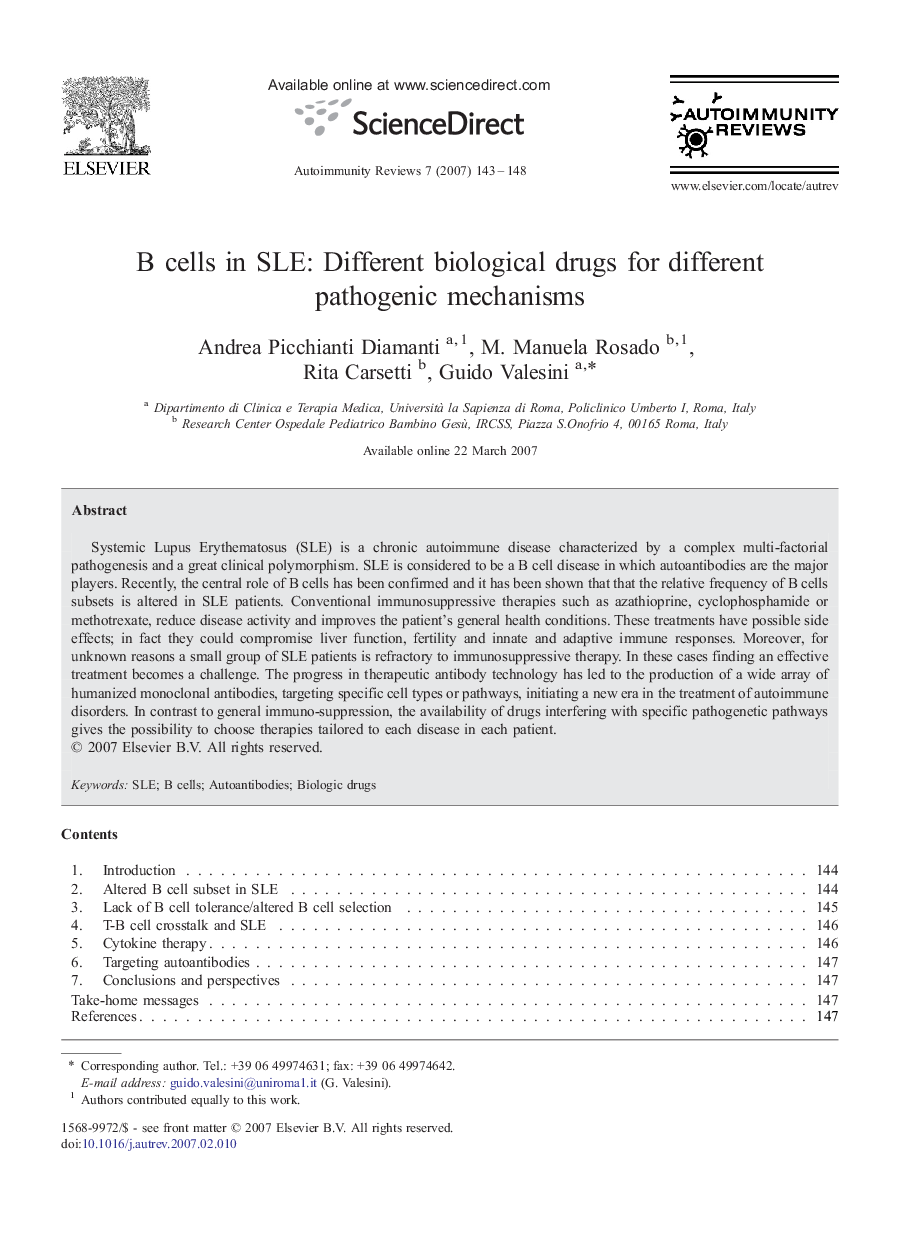| Article ID | Journal | Published Year | Pages | File Type |
|---|---|---|---|---|
| 3342527 | Autoimmunity Reviews | 2007 | 6 Pages |
Systemic Lupus Erythematosus (SLE) is a chronic autoimmune disease characterized by a complex multi-factorial pathogenesis and a great clinical polymorphism. SLE is considered to be a B cell disease in which autoantibodies are the major players. Recently, the central role of B cells has been confirmed and it has been shown that that the relative frequency of B cells subsets is altered in SLE patients. Conventional immunosuppressive therapies such as azathioprine, cyclophosphamide or methotrexate, reduce disease activity and improves the patient's general health conditions. These treatments have possible side effects; in fact they could compromise liver function, fertility and innate and adaptive immune responses. Moreover, for unknown reasons a small group of SLE patients is refractory to immunosuppressive therapy. In these cases finding an effective treatment becomes a challenge. The progress in therapeutic antibody technology has led to the production of a wide array of humanized monoclonal antibodies, targeting specific cell types or pathways, initiating a new era in the treatment of autoimmune disorders. In contrast to general immuno-suppression, the availability of drugs interfering with specific pathogenetic pathways gives the possibility to choose therapies tailored to each disease in each patient.
